iq
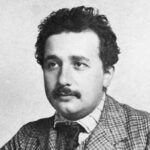
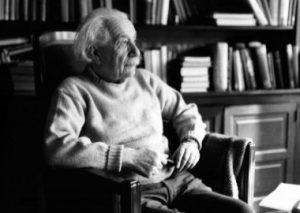 I have always been intrigued by Albert Einstein. Albert Einstein had an estimated IQ (Intelligence Quotient) of 160 to 190, although it was never really tested, so it could be higher. According to Mensa International, IQ is a score that identifies how far above or below someone is in comparison to others’ mental ability. Mensa is the largest and oldest high-IQ society in the world. It is a non-profit organization open to people who score at the 98th percentile or higher on a standardized, supervised IQ or other approved intelligence test.
I have always been intrigued by Albert Einstein. Albert Einstein had an estimated IQ (Intelligence Quotient) of 160 to 190, although it was never really tested, so it could be higher. According to Mensa International, IQ is a score that identifies how far above or below someone is in comparison to others’ mental ability. Mensa is the largest and oldest high-IQ society in the world. It is a non-profit organization open to people who score at the 98th percentile or higher on a standardized, supervised IQ or other approved intelligence test.
The term, IQ originated in 1912, and since then, IQ tests have been further developed to define standard deviations of someone’s logic and reasoning. Nevertheless, even with the tests, intelligence is not easy to measure. Many of those who are considered “the smartest people in the world,” such as Stephen Hawking and Albert Einstein, do not have extraordinarily high IQ scores in comparison with others. Still, the prowess they display in their everyday life and in the great achievements they make shows their intelligence in ways no test can effectively measure. I would think that this is a far greater measure of their intelligence. Some of the most intelligent people do not do well and do not like taking a test. Some even get very anxious when testing.

Of course, we have all heard of the famous Einstein equation E = MC² and have probably wondered what that was all about. It was in his 1905 paper, that Einstein proposed his famous equation: E = MC². That equation laid out a new understanding of “the matter/energy relationship where the energy of a body is equal to the mass of that body multiplied by the speed of light squared.” Now, if that doesn’t make sense to you…well, you are among the majority of people who feel the same way. First of all, tell me how fast if the speed of light squared. No, I can’t explain that either…but, Einstein knew. Einstein was awarded the Nobel Prize in Physics for his study of the photoelectric effect in 1921. Einstein (a Jewish man) immigrated to the United States during the outbreak of World War II, after being targeted by Hitler’s administration. In the United States, his work became crucial in the development of the atomic bomb later during the war.
While his great discoveries and scientific advancements were crucial to advancement on the world stage, they were not his only abilities. Einstein was outspoken, eloquent, and he had abilities that were far beyond the confines of the scientific community. He played the violin. He loved both the classic and popular literature of his time. He was funny, often without realizing it. He once told a conductor on the train he had boarded, when 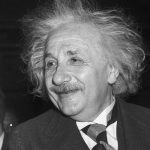
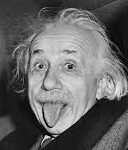 asked for the ticket he had misplaced, that if he did not find his ticket…he would not know where to get off!! Eistein kept his mind clear for more important things, but not cluttering it with things that could be written down, such as the station when he was to disembark. He was also not snooty, and certainly not above making the occasional funny face. He was known for having clutter. He had too much on his mind to worry about neatness. All in all, Einstein was simply a real person, and his personality took in all that entailed. Today marks the 145th anniversary of this great man’s birth. I would have liked very much to know Albert Einstein.
asked for the ticket he had misplaced, that if he did not find his ticket…he would not know where to get off!! Eistein kept his mind clear for more important things, but not cluttering it with things that could be written down, such as the station when he was to disembark. He was also not snooty, and certainly not above making the occasional funny face. He was known for having clutter. He had too much on his mind to worry about neatness. All in all, Einstein was simply a real person, and his personality took in all that entailed. Today marks the 145th anniversary of this great man’s birth. I would have liked very much to know Albert Einstein.
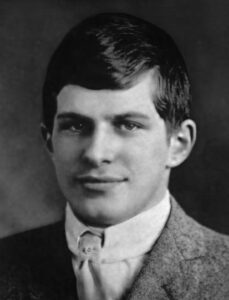
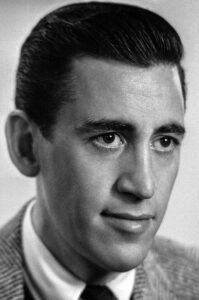 They say that genius can be the closest thing to crazy, but I don’t really know how true that is. Sometimes I think that when a person is a genius, people drive them crazy. It’s the novelty of the thing, I suppose. People find out that the genius has a super high IQ, and they all seem to want something from them. Many people don’t really care about the genius as a person, just about how they might be able to make money off of them somehow. Not every inventor is a genius, but some of them are, as are some mathematicians, doctors, teachers, writers, and many other people too.
They say that genius can be the closest thing to crazy, but I don’t really know how true that is. Sometimes I think that when a person is a genius, people drive them crazy. It’s the novelty of the thing, I suppose. People find out that the genius has a super high IQ, and they all seem to want something from them. Many people don’t really care about the genius as a person, just about how they might be able to make money off of them somehow. Not every inventor is a genius, but some of them are, as are some mathematicians, doctors, teachers, writers, and many other people too.
Sometimes the demands placed on these geniuses gets to be so heavy, that they might just snap. I don’t mean that they might go insane, although some of them have. The thing that seems to happen most, however, is that they might just decide to disappear. Several geniuses have simply vanished, 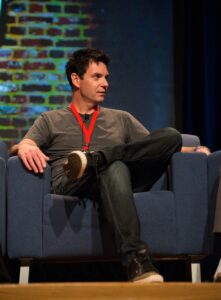 including William Sidis (who graduated from Harvard at 16, only to go into hiding, going from city to city and job to job), JD Salinger (author of Catcher in the Rye, who left Manhattan in 1953 to live on a “90-acre compound” in Cornish, NH. He remained there until his death in 2010, at age 91, saying he loved to write, but publishing was a terrible invasion of his privacy), Ettore Majorana (a theoretical physicist was considered one of the most deeply brilliant men in the world by Enrico Fermi, creator of the first nuclear reactor. One day he drained his bank account and simply vanished), David Thorne (an architect received so much attention for his work on jazz giant Dave Brubeck’s house in 1954, that he changed his professional name in the ‘60s to Beverly Thorne, got an unlisted phone number, and didn’t “resurface” until the 1980s), and Nick Gill (who at 21, was the youngest-ever British chef to win a Michelin star. He seemed destined for a life of fame and fortune and was hailed as a culinary genius. One day he told his brother he was going to disappear, and to “please, not look for him,” never to be seen again).
including William Sidis (who graduated from Harvard at 16, only to go into hiding, going from city to city and job to job), JD Salinger (author of Catcher in the Rye, who left Manhattan in 1953 to live on a “90-acre compound” in Cornish, NH. He remained there until his death in 2010, at age 91, saying he loved to write, but publishing was a terrible invasion of his privacy), Ettore Majorana (a theoretical physicist was considered one of the most deeply brilliant men in the world by Enrico Fermi, creator of the first nuclear reactor. One day he drained his bank account and simply vanished), David Thorne (an architect received so much attention for his work on jazz giant Dave Brubeck’s house in 1954, that he changed his professional name in the ‘60s to Beverly Thorne, got an unlisted phone number, and didn’t “resurface” until the 1980s), and Nick Gill (who at 21, was the youngest-ever British chef to win a Michelin star. He seemed destined for a life of fame and fortune and was hailed as a culinary genius. One day he told his brother he was going to disappear, and to “please, not look for him,” never to be seen again).
It isn’t known, as to why these geniuses would decide that they no longer wanted to be a part of the world, nor 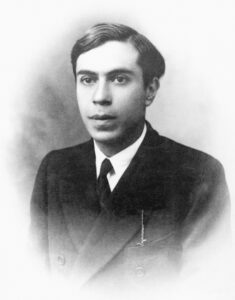
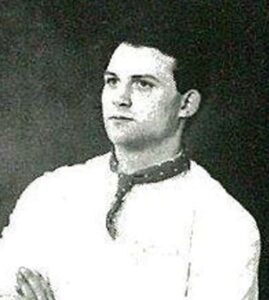 are they to only people to do this by any means. Nevertheless, they seem to have one thing in common, their genius skill or knowledge seemed to take over their whole life, and people wouldn’t leave them alone, but rather hounded them unmercifully. I think I can understand how that would be enough to make someone want to disappear, but most people don’t actually go so far as to take that step. It is a rather extreme step to take, and for all we know some of these might have been killed or committed suicide. The sad reality for these genius minds is that the fame and constant pressure of celebrity was too much for them, and they just checked out, because the burden of knowledge was just too much for them.
are they to only people to do this by any means. Nevertheless, they seem to have one thing in common, their genius skill or knowledge seemed to take over their whole life, and people wouldn’t leave them alone, but rather hounded them unmercifully. I think I can understand how that would be enough to make someone want to disappear, but most people don’t actually go so far as to take that step. It is a rather extreme step to take, and for all we know some of these might have been killed or committed suicide. The sad reality for these genius minds is that the fame and constant pressure of celebrity was too much for them, and they just checked out, because the burden of knowledge was just too much for them.
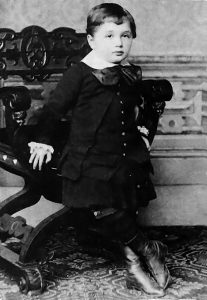
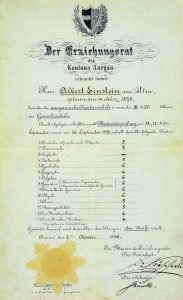 Of the great minds that have lived, I think I like Albert Einstein the best. I suppose some people would disagree with me, but each person relates differently to people, than other people do. I wish I could have met Einstein, because I think we think a lot alike. Of course, I don’t claim to have anywhere near the level of IQ that he had, but I do see some similarities in how we think. We both had the tendency to think that if something can be written down, or in my case stored in my iPhone, then I don’t need to store it in my mind too.
Of the great minds that have lived, I think I like Albert Einstein the best. I suppose some people would disagree with me, but each person relates differently to people, than other people do. I wish I could have met Einstein, because I think we think a lot alike. Of course, I don’t claim to have anywhere near the level of IQ that he had, but I do see some similarities in how we think. We both had the tendency to think that if something can be written down, or in my case stored in my iPhone, then I don’t need to store it in my mind too.
For Einstein, who was a genius, not storing information in his head became a bit of a problem once, when he misplaced the train ticket he had just purchased. When the conductor came by to take his ticket, a frantic Einstein searched unsuccessfully for his ticket. Seeing that he was obviously very upset by this occurrence, the conductor told him, “It’s alright, Mr Einstein, I saw you buy your ticket.” Einstein, still highly upset, said, “It may be alright with you, but if I don’t find my ticket, I don’t know where to get off!” That must have shocked the conductor, because he knew that Albert Einstein rode the same train to and from work every day. Of course, many things are different these days, and I don’t ride a train, plus I’m quite good at navigation, so I don’t see myself not knowing where to get off or to turn, in my case, but it was a real problem to Albert Einstein. It was also an incident that I found amusing, given the mind this man had. Einstein is said to have had an IQ of between 160 and 190, and while I have not been tested, I am quite sure that my IQ is not as high as Einstein’s was, by any stretch of the imagination.
I do know that Einstein had the ability to understand things that would boggle the minds of most people. “Einstein showed that absolute time had to be replaced by a new absolute: the speed of light. Einstein went against the grain and totally dismissed the “Old Physics.” He envisioned a world where space and time are 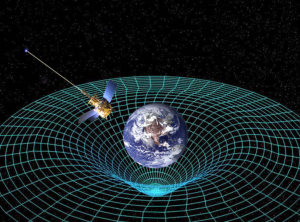
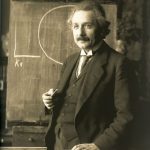 relative and the speed of light is absolute. Prior to that time, it was believed that space and time were absolute and the speed of light was relative. In 1921, Albert Einstein was awarded the Nobel Prize in Physics “for his services to theoretical physics and especially for his discovery of the law of the photoelectric effect”. In 1925, he was awarded the Copley Medal by the Royal Society, which is perhaps the oldest surviving scientific award in the world. Einstein’s mind was so interesting to me, but to him, it was just normal.
relative and the speed of light is absolute. Prior to that time, it was believed that space and time were absolute and the speed of light was relative. In 1921, Albert Einstein was awarded the Nobel Prize in Physics “for his services to theoretical physics and especially for his discovery of the law of the photoelectric effect”. In 1925, he was awarded the Copley Medal by the Royal Society, which is perhaps the oldest surviving scientific award in the world. Einstein’s mind was so interesting to me, but to him, it was just normal.

